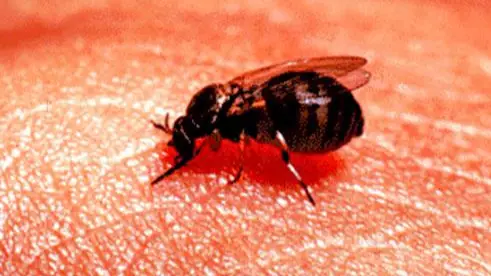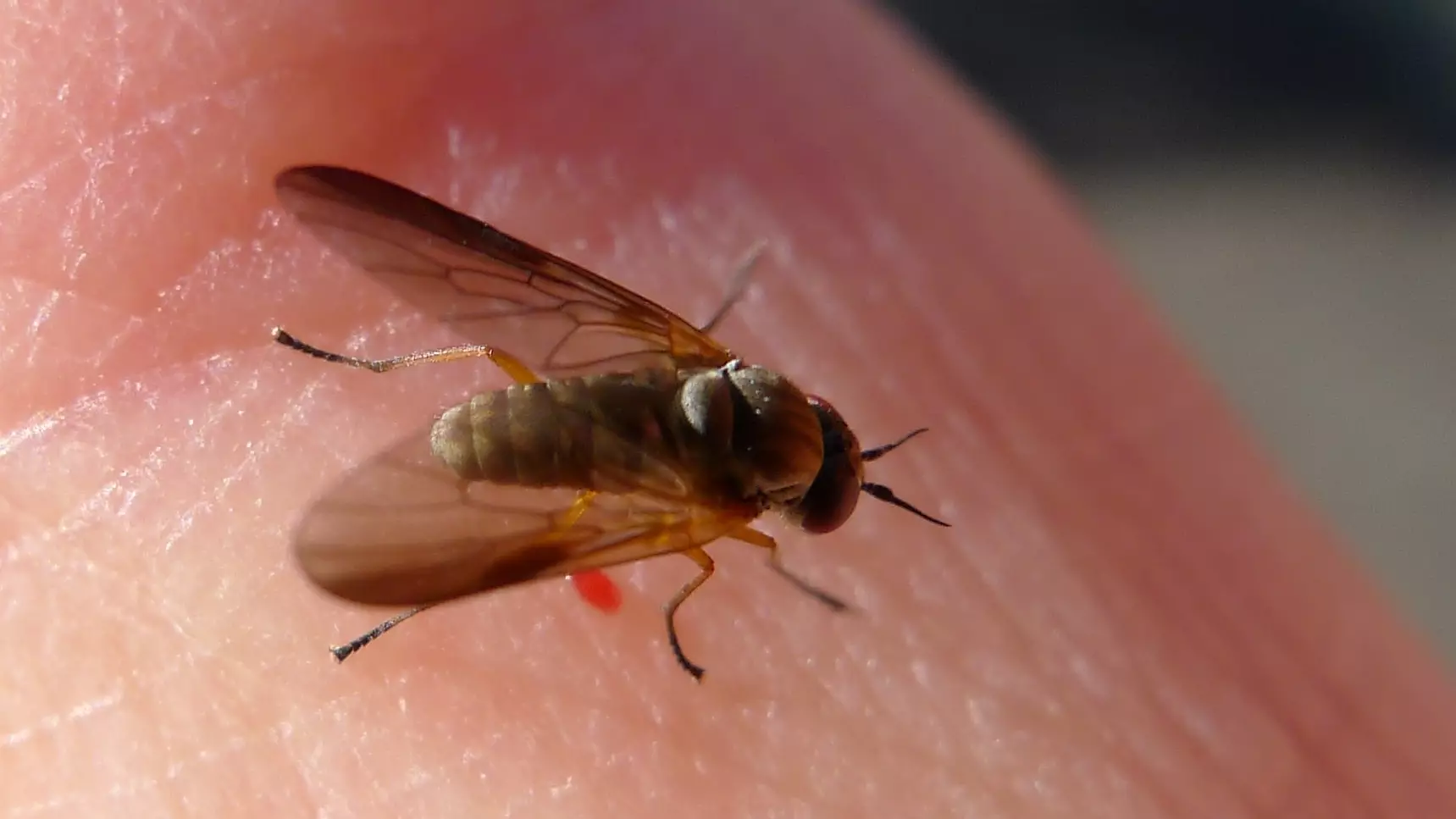
Residents in the south of England are being warned to watch out for Blandford flies - a blood-sucking insect that can cause huge blisters if it bites. An ideal way to ruin your summer.
As the weather gets warmer the Blandford fly thrives; the irritating little buggers are often found near rivers and streams and will often bite victims around the ankles as they fly low to the ground.
Advert
They're teeny - about 2-3mm long - but their bites can be nasty, leaving victims with blisters, a fever and swelling of the groin, sounds pleasant.
Karen Wright, Director of Public Health for Herefordshire said: "As the weather starts to get warmer, it is likely that we will see more cases of Blandford fly bites across the county.
"We encourage people to take precautions if they're out and about on our rivers and streams, especially over the forthcoming bank holiday weekends, by covering up and using a good quality insect repellent.
Advert
"If you do get bitten, it can often feel very uncomfortable with swelling, blistering, joint pain and sometimes a high temperature. However, there's normally no need to visit a GP.
"If you do feel unwell after a bite, please call NHS 111 or visit your local pharmacy for advice on how to ease your discomfort.
"For the majority of people, the symptoms will only last a few days before clearing up."
Advert
The flies are named after the Blandford area of Dorset which was hit with a heavy invasion during the 1960s and 70s. During the spring of 1972, 600 people from the town were treated for bites.
The fly - which, for lovers of useless info, has the scientific name simulium posticatum - has since ventured from Blandford and has been found in a number of southern areas in the UK, including Herefordshire and Oxfordshire; they're also found in Turkey, Germany and Sweden.
In some cases their bites can cause allergic reactions.

Things to watch out for include stomach cramps, discomfort, swelling or red lines in the groin or armpit or a spreading redness or hotness around the bite which sticks around for more than three days.
Featured Image Credit: Herefordshire Council